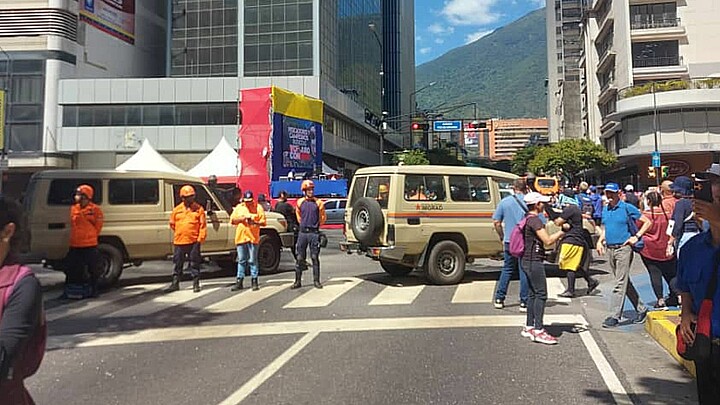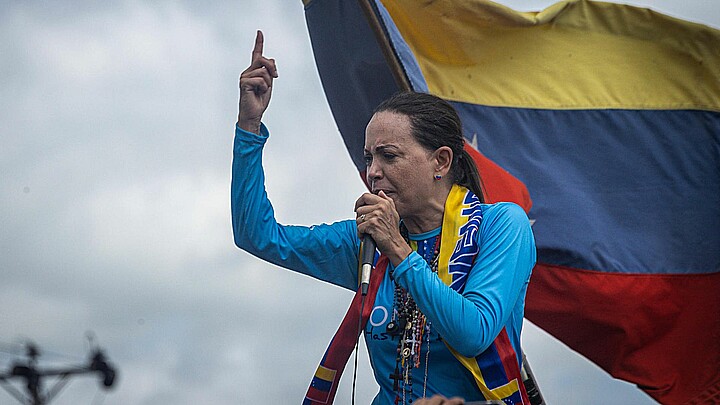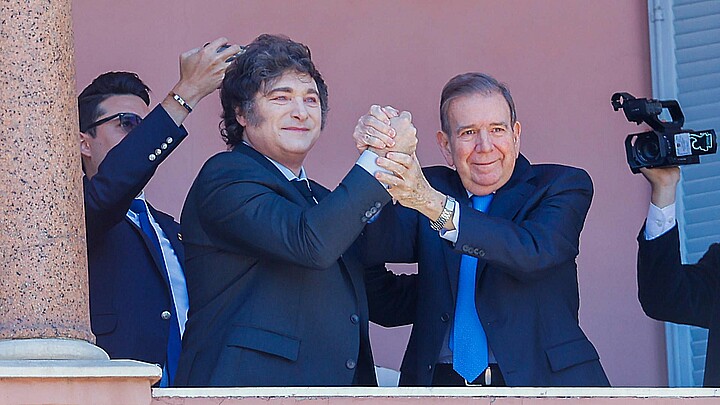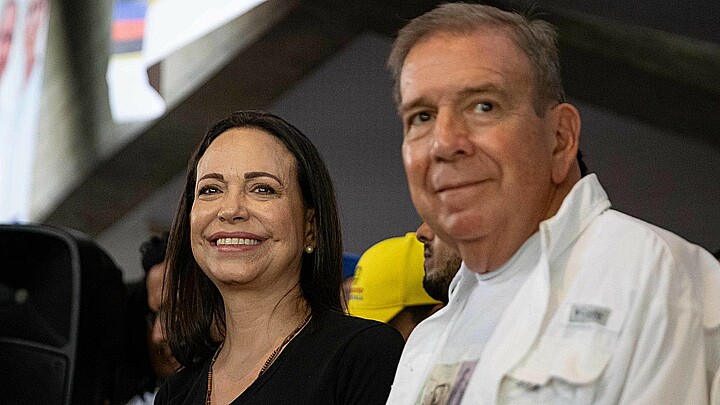Politics
Maduro calls European Union election observers “spies”
As votes for socialists diminish by nearly 1/3, falling to fewer than 4 million—down from 5.9 million in 2017—Maduro panics, accuses election observers of espionage
November 29, 2021 10:49am
Updated: November 29, 2021 2:06pm
Venezuelan strongman Nicolas Maduro lashed out against the European Union’s (EU) electoral observation mission on Sunday, claiming that members who monitored voting in Venezuela’s presidential elections last week were “spies.”
"They looked to stain the electoral process and they couldn't. A delegation of spies—they weren't observers—wandered freely around the country, spying on the country's social, economic and political life," Maduro told Venezuelan state television.
While the EU monitors reported that regional and local elections enjoyed better conditions than during previous election cycles, they raised concerns about banned opposition candidates, delays in opening voting centers and "extended use of state resources in the campaign,” The Washington Post reported.
The team, the first sent by the EU in 15 years included 1,000 observers who monitored voting in 22 out of 23 elections across Venezuela.
But U.S. Secretary of State Antony Blinken was not so generous when addressing the elections, fraught with political detentions, media censorship and the manipulation of voter registration.
"Fearful of the voice and vote of Venezuelans, the regime grossly skewed the process to determine the result of this election long before any ballots had been cast," Blinken said in a statement. "Maduro robs Venezuelans of their chance to shape their own future.”
Blinken continued to reiterate U.S. support for opposition leader Juan Guaido who is widely considered to be the legitimate interim President of Venezuela.
The EU dropped its recognition of Guaido in January after he lost his position as the head of the legislature.
Guaido took to Twitter on election day to decry the results, claiming that “Maduro continues to be illegitimate, and Venezuela continues to be a dictatorship.”
Hoy #22Nov Maduro sigue siendo ilegítimo y Venezuela continúa en dictadura.
— Juan Guaidó (@jguaido) November 23, 2021
Ayer hubo una clara expresión de los venezolanos para salir de la dictadura. Eso es lo que nos une como país, a los que participaron en ese proceso y los que no, y que además acompañan nuestros aliados. pic.twitter.com/PL17le63IR
“Yesterday, Venezuelans clearly expressed a desire to abandon dictatorship. That is what unites us as a country,” he wrote.
Before the election, Sen. Marco Rubio backed up Guaido and his claim that the electoral process in Venezuela is fraudulent.
“The individuals running, who are disguised as the opposition, are the same ones assisting the brutal regime,” Rubio said in a statement. “Giving any legitimacy to these sham elections will only prolong the agony of the Venezuelan people and perpetuate Maduro’s grip on power.”
“The United States must send a clear and unequivocal message to dictator Nicolás Maduro and his cronies: U.S. sanctions will remain in place until verifiably free, fair, and democratic elections are held in the nation and all political prisoners are released,” he added.
Last week’s elections marked the first time since 2017 that opposition politicians agreed to run against the dictatorship, but picked up just three out of 23 governorships and significantly less mayoral positions than the ruling party.
While Maduro’s party claimed a landslide victory across Venezuela, votes for the Socialists fell to fewer than 4 million, down from 5.9 million during the 2017 regional elections.










